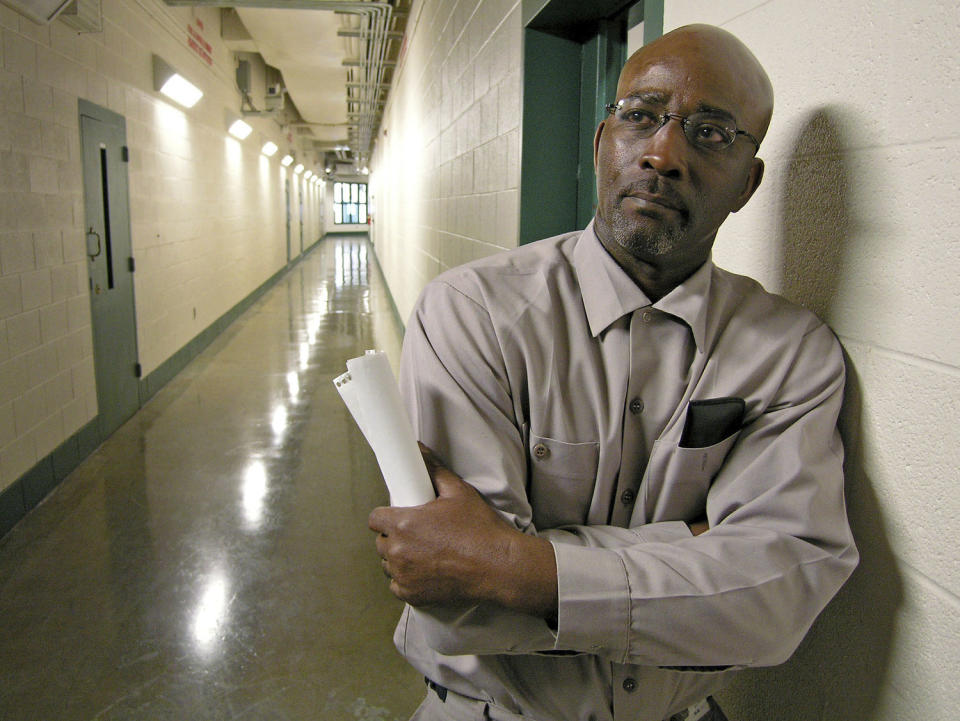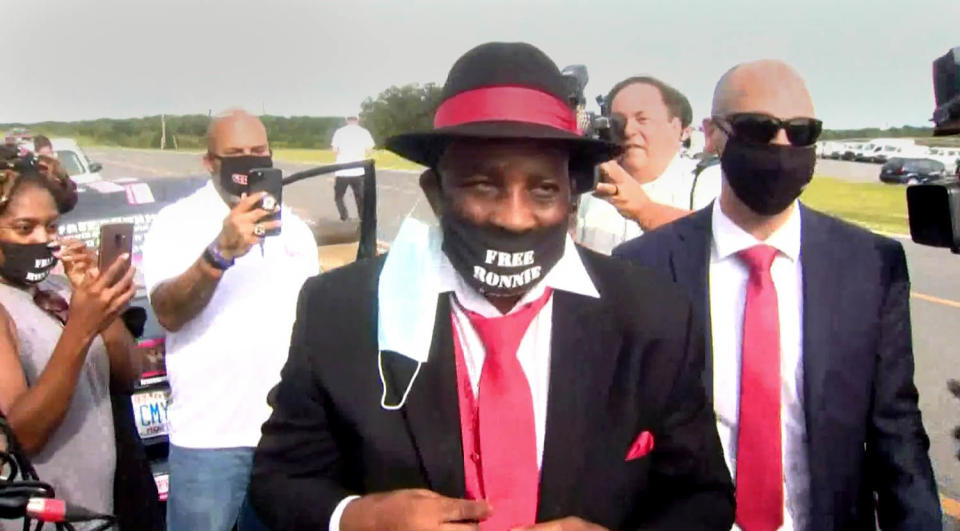Black man who spent 44 years in prison before he was exonerated gets record $25M settlement

A Black North Carolina man who spent 44 years in prison after he was wrongfully convicted of raping a prominent white woman has been awarded a historic $25 million settlement more than three years after he was exonerated.
Ronnie Long, 68, settled his civil lawsuit with the city of Concord, about 25 miles northeast of Charlotte, for $22 million, the city said in a news release Tuesday. The North Carolina State Bureau of Investigation had previously settled for $3 million, according to Duke Law School’s Wrongful Convictions Clinic.
The clinic, which represented Long, said the settlement is the second-largest wrongful conviction settlement recorded.

"It’s, obviously, a celebratory day today knowing that Ronnie’s going to have his means met for the rest of his life with this settlement. It’s been a long road to get to this point, so that’s a great outcome," clinical professor Jamie Lau, Long's criminal attorney, said in a phone interview Tuesday.
"Have we found justice in this case? Absolutely not. No amount of money will ever compensate Ronnie for all that he lost, but this is a big step forward for him," Lau said.
The city also issued a rare public apology to Long.
"We are deeply remorseful for the past wrongs that caused tremendous harm to Mr. Long, his family, friends and our community. Mr. Long suffered the extraordinary loss of his freedom and a substantial portion of his life because of this conviction," the city said. "He wrongly served 44 years, 3 months and 17 days in prison for a crime he did not commit."
"While there are no measures to fully restore to Mr. Long and his family all that was taken from them, through this agreement we are doing everything in our power to right the past wrongs and take responsibility," the apology continued. "We are hopeful this can begin the healing process for Mr. Long and our community, and that together we can move forward while learning valuable lessons and ensuring nothing like this ever happens again."

Sonya Pfeiffer, one of Long's civil attorneys, said a public apology was a part of Long's settlement demand.
"All of us on Ronnie's team were very pleased with the responsiveness by the city of Concord. He also got a private apology, a direct apology, which was meaningful, too," Pfeiffer said.
Chris Olson, another civil attorney for Long, said the settlement was "significant" and important "after this horror of four decades."
An all-white jury convicted Long on Oct. 1, 1976, after he was accused of raping a white woman. He was 21 when he was sentenced to life in prison, NBC affiliate WCNC of Charlotte reported.
His attorneys detailed numerous issues with his trial, beginning with jury selection. They said that before jury summonses were issued, the chief of police and the Cabarrus County sheriff had removed nearly all of the Black potential jurors, his attorneys said.
They said there was no physical evidence tying Long to the rape and the burglary and that he did not match the original description of the suspect — a "yellow or really light-skinned Black male." A rape kit collected at the hospital and provided to Concord police disappeared and has never been found, Long's attorneys said.
They said that the prosecution’s main piece of evidence was the victim’s identification of Long weeks after the attack and that it was "the product of a suggestive identification procedure arranged by the police to target Long."
There were also numerous pieces of evidence from the scene, including suspect hair and 43 fingerprints, that could have helped exonerate him, according to his attorneys. The material, which they said did not belong to Long, was tested by investigators but not disclosed. The attorneys also accused Concord police officers of giving false testimony about the evidence at Long's trial.
The Concord Police Department did not immediately respond to a request for comment Tuesday.
In February 2020, Long appealed his case. That year the 4th U.S. Circuit Court of Appeals ruled 9-6 that his due process rights were violated at trial and remanded the case to the district court to decide whether he was innocent, the Wrongful Convictions Clinic said.
In August 2020, the court overturned his conviction, and he was released on Aug. 27, 2020. Gov. Roy Cooper pardoned him four months later, WCNC reported. The following year, the state paid him $750,000.
Since his release, Long has put part of his settlement from the State Bureau of Investigation toward helping criminal justice reform, Lau said. He has been "trying to figure out modern society," according to his attorney, and spending time with his family, including his wife, whom he married while he was in prison, and a son from a relationship before his sentencing.
Long and his attorneys hope his case becomes an example of how others should be handled.
"One thing he recognizes is that he’s in a position of power now where he’s achieved a record settlement financially, so that sets the bar for others," Pfeiffer said. "If that could be the gold standard for all of these cases, that may be the closest that exonerees get to justice.”
This article was originally published on NBCNews.com
